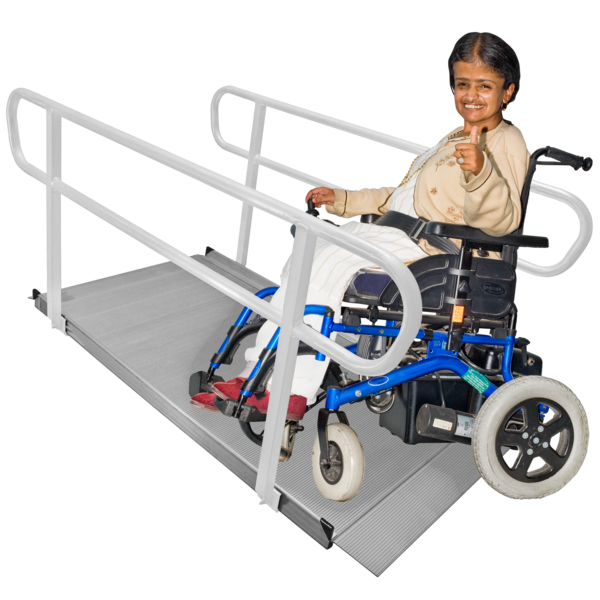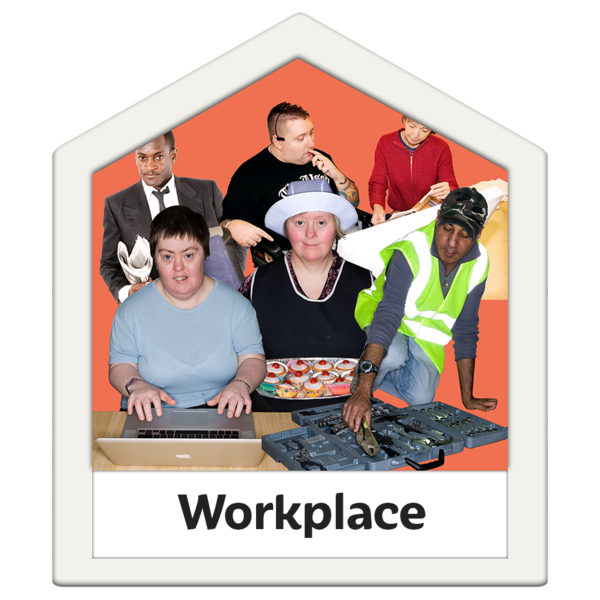This National Apprenticeship Week, Mencap, the UK’s leading
learning disability
 A learning disability is to do with the way someone's brain works. It makes it harder for someone to learn, understand or do things.
charity, is calling on the Department of
Education
A learning disability is to do with the way someone's brain works. It makes it harder for someone to learn, understand or do things.
charity, is calling on the Department of
Education
 Education is when you learn things. When you fill in a form to get a job, education means you write where you went to school, college or university.
to rethink their current regulations around apprenticeships.
Education is when you learn things. When you fill in a form to get a job, education means you write where you went to school, college or university.
to rethink their current regulations around apprenticeships.
Mencap have laid out recommendations in their
Accessible
 Accessible means something is easy for people to use or join in with. For example: Accessible writing means the writing is easy to read and understand.
Apprenticeships Report calling for change to allow for tens of thousands of people with a learning disability or learning difficulty to access more apprenticeships.
Accessible means something is easy for people to use or join in with. For example: Accessible writing means the writing is easy to read and understand.
Apprenticeships Report calling for change to allow for tens of thousands of people with a learning disability or learning difficulty to access more apprenticeships.
Between April-June 2021, Mencap surveyed 141 apprenticeship employers and training providers on the current system of minimum requirements to understand the views of the sector and found that current regulation presents unnecessary barriers for people with a learning disability or learning difficulty to enter and complete apprenticeships.
In 2019/20, only 12% of all apprentices identified as having a learning disability or learning difficulty or a health problem1. Among apprentices with a learning disability or learning difficulty, the most common primary diagnoses are
dyslexia
 Dyslexia is a learning difficulty. People who have dyslexia can find it hard to read, write and spell.
or a medical condition such as epilepsy, asthma or diabetes. Less than 0.5% of apprenticeship participants with an LDD had a learning disability as their primary diagnosis.2
Dyslexia is a learning difficulty. People who have dyslexia can find it hard to read, write and spell.
or a medical condition such as epilepsy, asthma or diabetes. Less than 0.5% of apprenticeship participants with an LDD had a learning disability as their primary diagnosis.2
Apprenticeships are life-changing opportunities. Apprenticeships enable people to learn, train, and earn a recognised qualification, while gaining practical
work experience
 Work experience is when you try out a job to help you learn new skills.
. For many people with a learning disability or learning difficulty, this combination of hands-on experience, learning, and pastoral support is the ideal training method. However, few have the opportunity to enter an apprenticeship with many falling at the first hurdle.
Work experience is when you try out a job to help you learn new skills.
. For many people with a learning disability or learning difficulty, this combination of hands-on experience, learning, and pastoral support is the ideal training method. However, few have the opportunity to enter an apprenticeship with many falling at the first hurdle.
Mencap have found that the majority of apprenticeship employers and training providers believe that the criteria for people with a learning disability or learning difficulty to qualify for flexibilities set out in the ‘Specification of Apprenticeship Standards for England’ are too restrictive. Mencap have set out a series of recommendations in their report to expand the adjusted minimums to people with a learning disability or learning difficulty.
The vast majority (96% of respondents) agree that people with a learning disability or learning difficulty should qualify for adjusted minimum standards based on a cognitive
assessment
 An assessment is a way of finding out what help a person needs. When you have an assessment, you might have to go to a meeting or fill in a form.
rather than evidence of an Education, Health and Care Plan (EHCP).
An assessment is a way of finding out what help a person needs. When you have an assessment, you might have to go to a meeting or fill in a form.
rather than evidence of an Education, Health and Care Plan (EHCP).
Mencap also suggest that where there is no industry-standard requirement for English and Maths qualifications that the practical English and Maths required for the job for people with a learning disability or learning difficulty are re-examined, such as the ability to talk to customers or identify correct weights and measurements.
71% of respondents to the survey described current English and Maths requirements as an ‘unnecessary barrier’ and 92% of employers would be willing to hire an apprentice with those practical adjusted minimums.
With many sectors currently struggling to recruit, the easing of these restrictions will allow businesses to enhance what they can offer by including people with different experiences and skills. If not, there is a worry that the current economic climate will worsen the barriers and widen inequalities that people with a learning disability already face.
Mark Capper, Head of Development in the Lifestyles & Work team at the learning disability charity Mencap, said:
“We have the opportunity to make a very subtle change to an already existing policy that will allow for tens of thousands of people to access apprenticeships. At a time when the UK is suffering significant labour shortages, we urge the Minister for Apprenticeships and Skills to think differently about the requirements needed for people with a learning disability.
“People with a learning disability can work and want to work and with the right support they can also make fantastic employees. Many have proved their worth during the pandemic – with some working as keyworkers. Now is the time to finally remove barriers and support people with a learning disability through inclusive employment
Employment means having a job. programmes so they can apply their dedication and skills.
“Implementing the recommendations laid out in Mencap’s Accessible Apprenticeships Report, which employers and training providers have agreed with, will enable more people with a learning disability and/or learning difficulty to access and successfully complete apprenticeships. Without action we will see a widening in the gap of opportunities and, without a truly diverse workforce, how can we expect a more diverse society.”
Through its employment programmes, Mencap supports people with a learning disability and/or
autism
 Autism is a disability. Autistic people find it difficult to understand what other people think and feel. They also find it difficult to tell people what they think and feel. Everyone with autism is different.
to become more independent and develop their employability as well as helping people to find work placements in a wide range of industries - from supermarkets to logistics and hospitals to hotels.
Autism is a disability. Autistic people find it difficult to understand what other people think and feel. They also find it difficult to tell people what they think and feel. Everyone with autism is different.
to become more independent and develop their employability as well as helping people to find work placements in a wide range of industries - from supermarkets to logistics and hospitals to hotels.
Through their roles, many have been keyworkers throughout the COVID-19 pandemic – the people society has all relied on to keep the country moving through the most difficult of times.
Mencap’s full recommendations can be found in their Accessible Apprenticeships Report: https://www.mencap.org.uk/sites/default/files/2022-01/Mencap%20Accessible%20Apprenticeships_0.pdf
For advice and support from Mencap, visit: https://www.mencap.org.uk/advice-and-support/employment/employing-people-learning-disability
-ENDS-
For further information, contact Mencap’s media team on: media@mencap.org.uk or 020 7696 5414 (including out of hours).
Notes to editors:
1Department of Education, ‘Apprenticeships Data Pack 2019-2020’, https://bit.ly/3hH8hrv
2Department of Education, ‘Apprenticeship Starts and Achievements LLDD 2018-2020’, https://bit.ly/3kfRzkA
About Mencap
There are approximately 1.5 million people with a learning disability in the UK. Mencap works to support people with a learning disability, their families and carers by fighting to change laws, improve services and access to education, employment and
leisure
 Leisure is when you have time to do things you enjoy like playing sports or going to the pub.
facilities. Mencap supports thousands of people with a learning disability to live their lives the way they want: www.mencap.org.uk
Leisure is when you have time to do things you enjoy like playing sports or going to the pub.
facilities. Mencap supports thousands of people with a learning disability to live their lives the way they want: www.mencap.org.uk
For advice and information about learning disability and Mencap services in your area, contact Mencap’s Freephone Learning Disability Helpline on 0808 808 1111 (10am-3pm, Monday-Friday) or email helpline@mencap.org.uk.
What is a learning disability?
- A learning disability is a reduced intellectual ability which means that people might need support with everyday tasks – for example shopping and cooking, or travelling to new places – which affects someone for their whole life;
- Learning disability is NOT a mental illness or a learning difficulty, such as dyslexia. Very often the term ‘learning difficulty’ is wrongly used interchangeably with ‘learning disability’;
- People with a learning disability can take longer to learn new things and may need support to develop new skills, understand difficult information and engage with other people. The level of support someone needs is different with every individual. For example, someone with a severe learning disability might need much more support with daily tasks than someone with a mild learning disability.